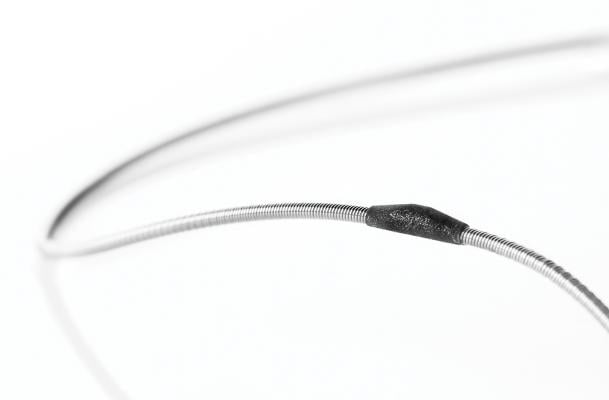
May 12, 2015 — Cardiovascular Systems Inc. (CSI) featured two-year data from its ORBIT II study of the company’s Diamondback 360 coronary orbital atherectomy system (OAS) in a late-breaking presentation at the 2015 Society for Cardiovascular Angiography and Interventions (SCAI) conference. Diamondback 360 is a U.S. Food and Drug Administration (FDA)-approved atherectomy technology indicated for the treatment of severely calcified lesions.
CSI completed ORBIT II enrollment of 443 patients at 49 U.S. medical centers in November 2012. The pivotal study evaluated the safety and efficacy of the company’s orbital atherectomy technology in treating patients with de novo severely calcified coronary lesions. ORBIT II was the first investigational device exemption (IDE) study in history to evaluate this problematic subset of patients. In October 2013, CSI received premarket application (PMA) approval from the FDA to market Diamondback 360 as a treatment for severely calcified coronary arteries to facilitate stent delivery.
Jeffrey Chambers, M.D., of Metropolitan Heart and Vascular Institute, Minneapolis, highlighted new data that demonstrated a high freedom from major adverse cardiac events (MACE) rate, including target lesion revascularization (TLR) and target vessel revascularization (TVR), at two years for this difficult-to-treat patient population.
“ORBIT II two-year data further demonstrates the safety and efficacy of using CSI’s Diamondback 360 orbital atherectomy system to treat severely calcified coronary arteries,” said Chambers. “We have witnessed impressive clinical and economic benefits of using this device in a complex patient population that can be challenging to treat with traditional options. We also know now that using the coronary OAS device prior to stent treatment in severely calcified arteries yields durable, long-term results.”
Chambers presented the following two-year data:
Two-Year Freedom From:
MACE 80.6%
MI (CK-MB >3x ULN)* 90.3%
Non Q-wave 91.2%
Q-wave 99.1%
TVR/TLR 91.9%
TVR 97.1%
TLR 93.8%
Cardiac Death 95.7%
*Based on reported CK-MB >3X ULN
Long-term patient outcomes are critical to understanding rates of hospital readmission when evaluating cost savings for the treating institutions and overall healthcare system. The Diamondback 360 Coronary OAS has been associated with a shorter length of stay for patients when the device was used to treat severely calcified lesions to facilitate stent placement compared to treating without the Diamondback 360. The lower incidence of readmission and shorter length of stay provide an estimated cost savings of up to $4,913 per patient to the treating institution at one year following the procedure.
The OAS device offers value with an incremental cost effectiveness ratio (ICER) of $11,895 per life year gained, which is well under the $50,000 per quality-adjusted life year (QALY) threshold, to be considered “high value.”
For more information: www.csi360.com


 January 05, 2026
January 05, 2026 









